This week we are checking in with another one of your classmates – Nathaniel Fuchs!
He is the recipient of a Fulbright grant to do research in Norway this fall. Check out his post grad story.
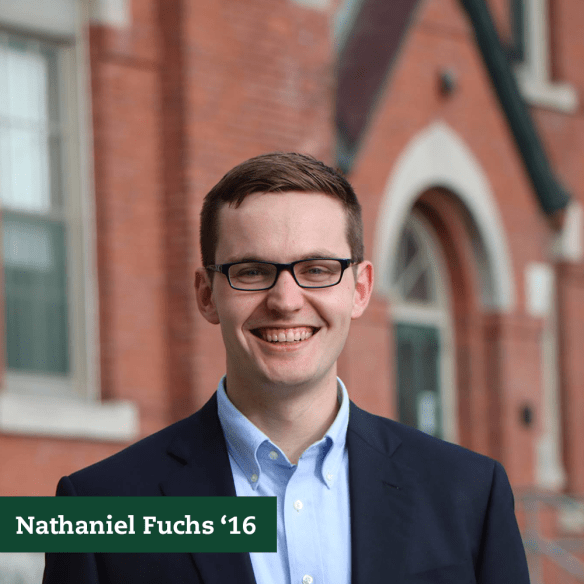
Describe your first year out of UVM.
I have been fortunate in my first year out of UVM and I’m grateful for the friends, family and places that have made it so interesting. But first of all WOW… it’s been a whole year!
It boggles the mind, graduation seems like a moment ago.
To give a brief timeline I started the summer working for UVM’s Spatial Analysis Lab (SAL) as a Team lead, left for six weeks to work as hiking crew in the Olympic Mountains of Washington state, came without a day to spare to be an assistant Manager at a hiking camp (Cold River Camp) in the White Mountains of New Hampshire for two weeks, returned to SAL for a number of months.
I currently write to you in a cabin lit by firelight again as assistant Manager of Cold River. In a month I leave for Norway to start my Public Health research as a Fulbright Scholar.
Reflecting on my travels it seems like an improbable feat, I’ve been many places and jumped from one experience straight into another, in a word tumultuous. I flew through 8 airports, drank water from the snowfields of the Olympic Mountains, stuck my feet in the sand of both the Pacific and Atlantic shores, faced off with mountain goats and wrote a Fulbright application in a tent without a floor.
I received notice of being accepted to Brown, Boston University and Tufts Medical School for Masters in Public Health and have been granted status as a Fulbright Scholar.
I currently consider myself the most fortunate man alive.
These experiences have allowed me to meet a number of fantastic people, see the natural beauty our nation has to offer, do research and save for graduate school. For a first year out from college, it’s been an exciting adventure.
What was your biggest challenge and how did you overcome it?
The greatest challenge that I faced in my year out from college was, I think, a universal one. Namely, the transition to a different way of life, from student to a fully matriculated adult. Being at university brings the stress of trying to succeed in the structure set out by others.
By graduating, it’s now on you to both create structure and succeed within it. This transition, for me was really hammered home by the process of securing jobs and organizing a path that leads to where I want to go.
Overcoming the transition for me was really a process of persistence and deliberation. To apply to competitive grants and jobs is difficult. Specifically because you know that it’s possible that some or all of it won’t pan out as planned.
The silver lining is that eventually something WILL WORK and the only path to success is to keep on trying.
What did you learn from this experience?
The most valuable lesson I’ve learned is that finding confidence equal to ones ability is really the true test of becoming an adult. Sometimes I feel like I’m just a kid from a small town doing his own thing.
However, in the end of the day I’ve gained knowledge from my experiences/mentors and I can navigate a world of problems, it I put myself up to the task.
If you could go back in time, what advice would you give to yourself as you prepared to graduate from UVM?
Simply put I would say plan for the future and enjoy the present, don’t put one of those two in higher priority than the other. After all it is possible to do both.
What are you doing now and what are you looking to do next?
As mentioned above, I’m currently working as a manager at a hiking camp in the wilds of the White Mountains. It’s the place that I love most in the world and it’s fortunate in the extreme that I get to enjoy the solitude of the woods and streams before venturing off into the bustle of Oslo.
I’ll be off to do my Fulbright Research in August. After that I’ll either be off to Graduate school or maybe another research grant if I’m lucky!



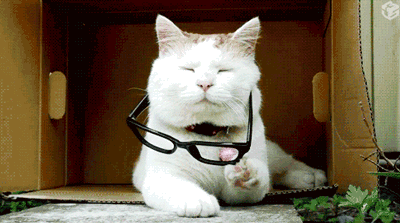



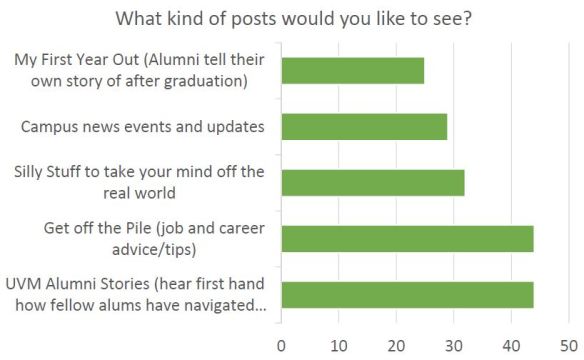
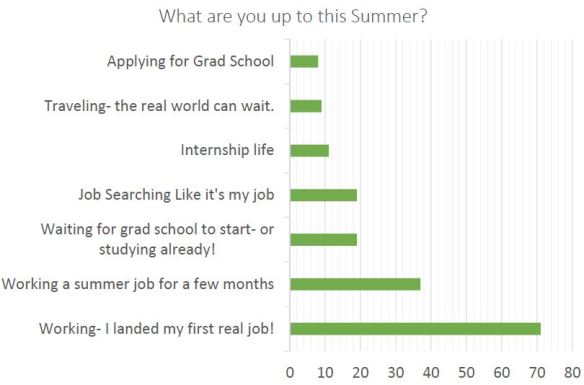
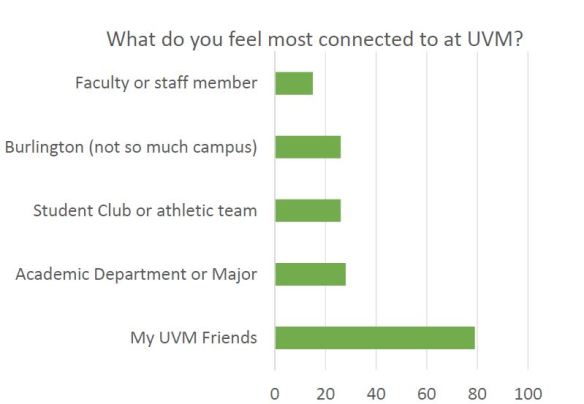


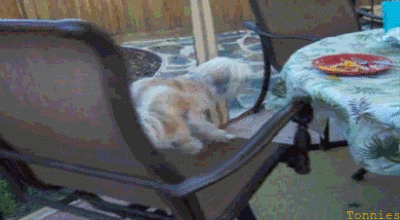




You must be logged in to post a comment.